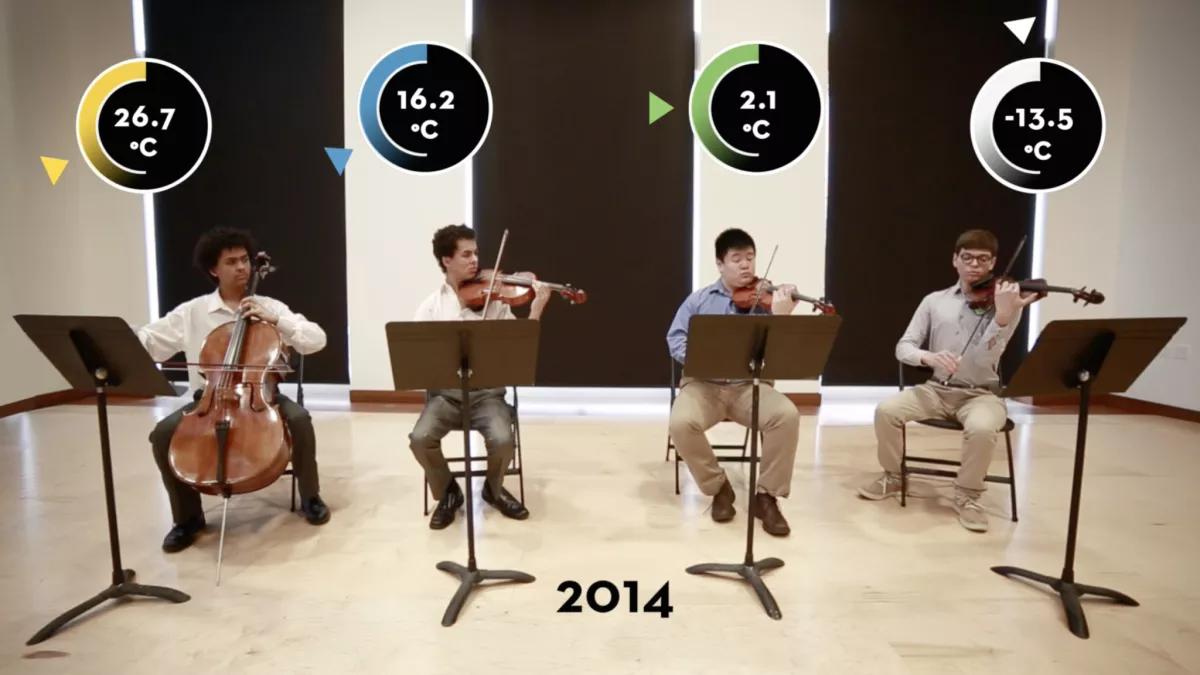Back in ’13, we wrote about a little diddy called “A Song of Our Warming Planet.” The composition put the Earth’s warming from 1880 to 2012 to music — every note corresponded to a year, with the pitch representing a temperature. Now, the composers from the University of Minnesota are back with a new song. This piece, called “Planetary Bands, Warming World,” translates global warming data from different regions of the world to music. And it’s pretty damn amazing.
The co-composers, undergraduate Daniel Crawford and geography professor Scott St. George, set out to represent climate data with a string quartet rather than with the maps and spreadsheets we usually see. The music is written based on surface temperature data from NASA’s Goddard Institute for Space Studies. Here’s Crawford with the details:
The cello matches the temperature of the equatorial zone. The viola tracks the mid-latitudes. The two violins separately match the temperatures of the high altitudes and the arctic.
The pitch of each note is tuned to the average annual temperature of that region. A really low note on the cello means the equatorial zone was cold that year, and a really high note on the violin means warm weather stretching across the arctic.
When we blend the four instruments together, the four regions, together, you’re able to hear quite clearly how temperatures fluctuate across the globe, from the equator to the North Pole.
And if we start the performance in 1880 and end at the present, you can hear how much temperatures have increased and what regions have warmed the most.
If you don’t get emotional from listening to string quartet music already (what? gets me every time), you’ll definitely be getting major goosebumps when you hear the cadence — and eventual crescendo — of climate change across the globe.
Click here to download “Planetary Bands, Warming World.”




